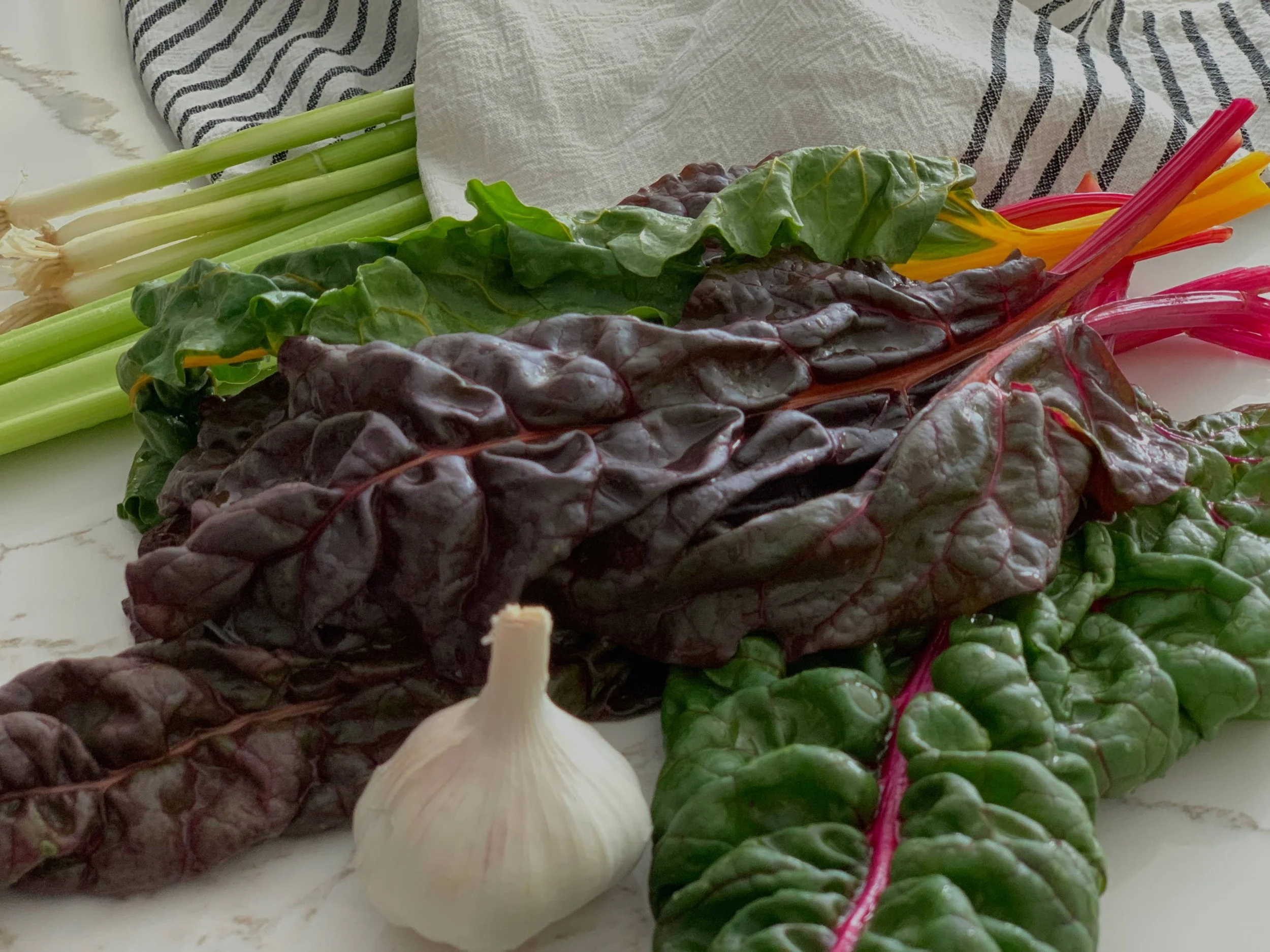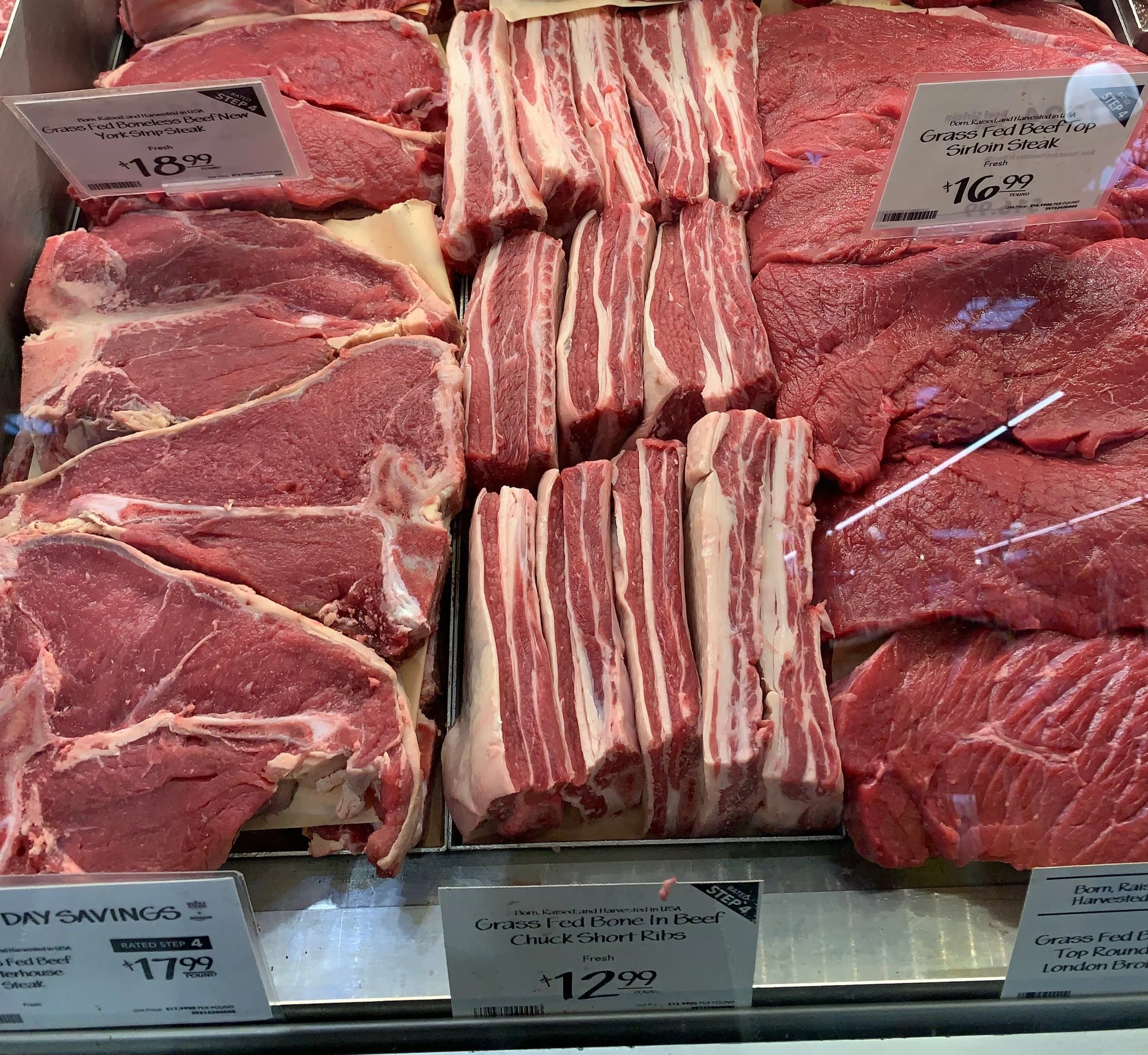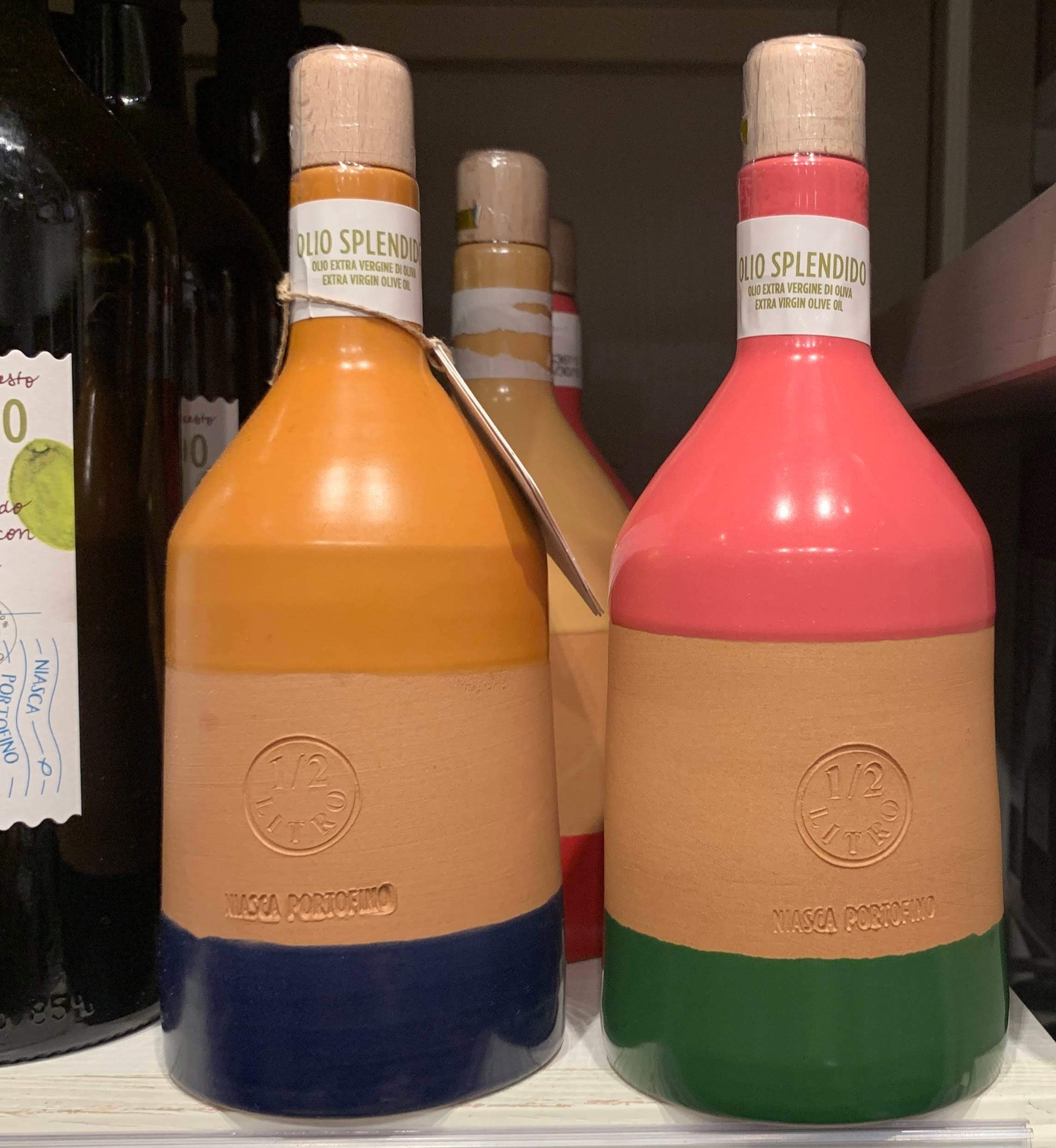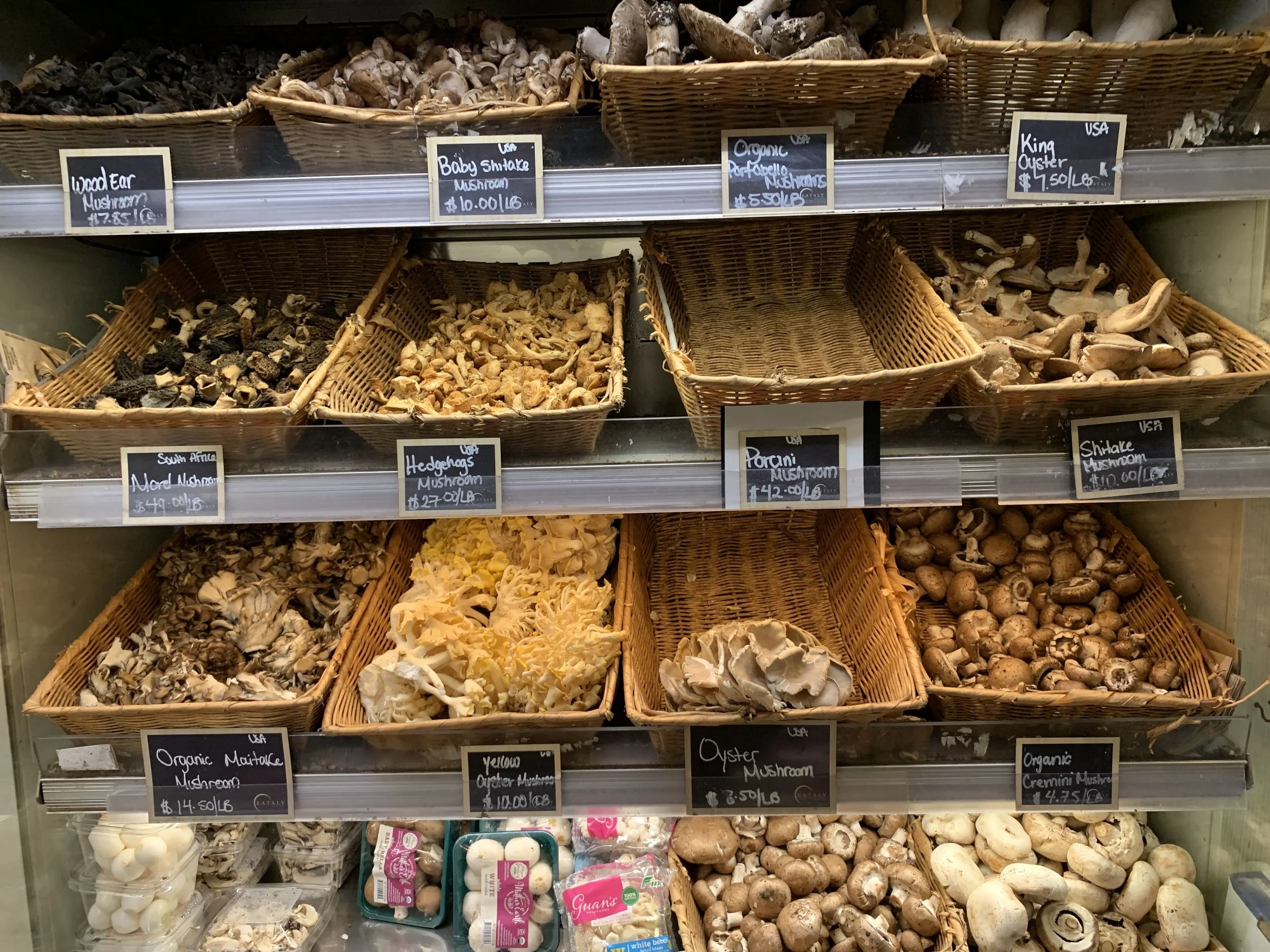Which Foods You Should Always Buy Organic?
Organic or not organic, that is the question.
Should I buy organic bananas, or are the conventional ones safe? How about pantry items like sugar and oil?
The question of organic vs. conventional (non-organic) is very relevant if you want to shop smart. In doing so, you might feel the strain of trying to balance both your health and your wallet. Add sustainability and ethics into the equation and eating organically becomes even more complicated. In this post, we share with you our point of view. It is based on research we’ve conducted as of January 2019.
Before we get to our findings, here is a list of the USDA Organic seal requirements issued by the US Department of Agriculture. According to the USDA, an item is considered organic if it’s been:
Produced without excluded methods (e.g., genetic engineering), ionizing radiation, or sewage sludge.
Produced per the National List of Allowed and Prohibited Substances. Prohibited substances include sulfates and nitrates.
Overseen by a certifying agent of the USDA National Organic Program who follows all USDA organic regulations.
Please note: companies may still use the organic labeling without using the USDA seal. There are also other entities throughout the world and in the US that certify food as organic.
Should You Buy Organic or Conventional?
…having the best of both worlds…
Some people are obsessed with buying all things organic. However, going exclusively organic isn’t possible for everyone. Though it’s a better choice for your health, it’s more expensive and less sustainable. This is why it’s a good idea to develop a good balance between shopping organic and shopping conventional.
Over the years, I’ve developed a rather simplified way of determining what to buy organic and what to buy conventional. My methodology relies heavily on the findings of the Environmental Working Group Guide to Produce (EWG) and other studies. The three lists below divide different types of food into three categories. There are the foods to buy organic, foods to buy organic only if your budget allows, and foods that can be bought conventional. Keep in mind that these lists provide some flexibility. For example, even though the EWG doesn’t list blackberries as unsafe to buy conventional, all types of berries are included in the “Always Organic” category.
My Rules of Thumb (And Why)
Sustainability is an important factor to consider when you’re deciding what you should and should not buy organic. Environmentally speaking, organic farming is about 20% less efficient. It also requires more environmental resources than conventional farming. This is why I buy conventional so long as what I’m buying is clean of “dirty” pesticides. So, don’t bother buying the organic bananas (unless they’re locally grown).
How about GMOs? Since crossbreeding has been practiced for centuries, I’m not convinced that it’s actually harmful. However, there is a 10% chance that the science behind crossbreeding is wrong. After all, it is possible that a gene from a fish could be added to a fruit. This is why I get non-GMO whenever the budget allows.
The organic list
Always buy organic
Meat, Dairy, and Eggs
Studies identify hormones in some dairy products as a risk factor for various cancers in humans. Nutritionally, organic meat is also superior to conventional meat.
In addition, conventional meat is produced by having animals live together in cramped spaces. Oftentimes, the animals are also given feed that contains other animal remains.
Apples and Pears (all varieties)
This is one apple that will not keep the doctor away. 80% of non-organic apples that have been tested contain diphenylamine, a pesticide banned in Europe. EWG
Berries
Strawberries are number 1 on the EWG’s Dirty Dozen Plus list. Blueberries and raspberries are also in the top 25. Berries are some of the priciest fruits at the grocery store and are double the price when organic. To save money, consider using organic frozen berries for baked goods and smoothies.
Celery
Snacking on celery is a very healthy habit. However, when you read about the 13 different pesticides found in a sample of conventional celery, you may wonder if eating celery does more harm than good. If you love a celery snack, make it organic to maximize the benefits. EWG
Citrus (Lemons, Oranges, Mandarin, Grapefruit), but only if you're planning to use the zest
The peel provides a protective layer for the inside of conventionally-produced citrus fruits. Despite this, the outside still becomes covered in pesticides and chemicals. If you plan on using the peel of citrus fruits for your cooking or baking, buy organic to eliminate the possibility of consuming harmful pesticides. EWG
Dried Fruits
We really don’t like sulphur dioxide. In higher quantities and in gas form it is toxic to humans. It is the primary method of drying fruits as it helps preserve them and their beautiful color.
Grapes
A staple of many lunch boxes and cheese trays, grapes are one of the most pesticide-treated fruits. EWG
Green Beans
A dinner staple and a side dish that goes well with fish and meat, you’ll want to make sure your green beans are organic. It is number 21 on the EWG list.
Herbs and Spices
The majority of herbs and spices are treated with pesticides. For some herbs, such as thyme, the pesticide residue can exceed the recommended levels by almost 50%.
Kale
A new addition to the 2019 EWG list of dirty dozen, Kale is on every “Health Foods” list. Eliminate more than 18 types of pesticides from your food by going for the organic option.
Nuts
Nuts are processed, fertilized, and sprayed using many types of chemicals harmful to humans. For example: Propylene Oxide.
Potatoes
As a nation, we eat more potatoes than any other crop. Potatoes also have the distinct honor of having the most pesticide residue by weight. If this is your go-to veggie, you should buy organic. EWG
Snap Peas
Imported snap peas tend to have more pesticide residue. However, US grown ones are not safe either. EWG
Stone Fruits (Cherries, Nectarines, Peaches)
The high levels of pesticide residue in stone fruits earns them a place in the top 10 of the Dirty Dozen list.
Tomatoes, Peppers, Cucumbers (all varieties)
Your summer salad needs to be organic if you don’t want to eat all kinds of pesticides with it. Some conventionally produced tomatoes come with as many as 15 different pesticides! EWG
Tea
Tea leaves tend to absorb all types of chemicals. In addition, they’re also sprayed with pesticides. Because tea sourcing is one of the most complex and time-consuming topics I’ve come across, I just try to limit my teas to organic varieties from Japan and the US.
Other produce to buy organic
Bell peppers, lettuce, cucumbers, hot peppers, and green beans.
The MayBe-Organic list
when local is not available and cost is not an issue
The “Maybe list” consists of items that are in the gray zone between a definite “yes” and a definite “no.”
Chocolate
In addition to processing concerns, regulations in countries where chocolate is harvested also makes chocolate a “maybe” in our book.
Coffee Beans
The actual coffee beans we like can be of single origin. On the other hand, the processing can generate harmful elements.
Corn, Papayas, and Zucchini
Sweet corn ranks number 2 on EWG’s Clean Fifteen list. In samples taken of sweet corn, less than 1% were found to contain pesticides. There are some GMO concerns with corn, papayas, and zucchini. Despite this, their pesticide levels are considered low. Also, their organic counterparts can be expensive.
Soybeans and soybean products (vegan alternatives)
There are GMO concerns with soybeans. However, because of their commonality in many different products, local and sustainable practices override GMO concerns for us.
Sugar
The majority of US sugar is produced from sugar beets, over which there are some GMO concerns. Because beet sugar is the common sugar used in most products, it’s difficult to only purchase products made with pure cane sugar. These non-GMO products can also cost substantially more.
Vegetable Oils
Vegetable oil, canola oil, cottonseed oil, soybean oil and corn oil all have some GMO concerns. Nevertheless, almost every cooked meal contains some amount of oil. This means it can be expensive if you buy all of your oils organic.
The Conventional list
No need to pay the organic premium on these items
No need to spend any money on the premium organic version of these ingredients. Buy them organic
Asparagus
The woody stalk of asparagus has a two-fold purpose. It provide a barrier that keeps harmful chemicals from absorbing into the vegetable. It also contains an enzyme that breaks down the pesticide malathion.
Avocados
Avocado is number 1 on the Clean Fifteen list. Its hard outer skin is practically impenetrable by pesticides and harmful chemicals.
Bananas
The thick outer peel of bananas acts as a protective barrier against pesticides. So, unless your grocery store’s organic bananas cost the same as its conventional counterparts, there’s very little reason to buy the more expensive of the two.
Cabbage
Cabbages are not sprayed with pesticides as much as other fruits and vegetables because they produce glucosinolates that ward off insects.
Broccoli
Just like cabbage, broccoli has a natural ability to deter insects. This means fewer pesticides are sprayed on it in the first place.
Eggplants
Eggplants are number 7 on the Clean Fifteen list. This is due to their skin, which is thick and doesn’t absorb pesticides. So, as long as you rinse your eggplant, buying conventional is fine.
Mushrooms
Not only are mushrooms pretty safe when it comes to pesticides and harmful chemicals, but they are usually washed before being packaged. After you buy them, give them a second rinse.
Onions
Onions that are tested are found to contain less than 10% of residue leftover from pesticides. This makes them a pretty safe choice to buy conventional.




